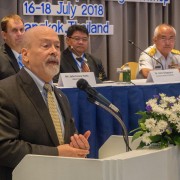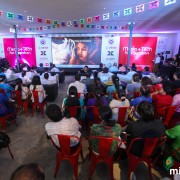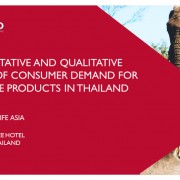Speeches Shim

The USAID Oceans and Fisheries Partnership was designed to promote transnational collaboration to address illegal, unregulated and unsustainable fishing. And it’s clear from the participation and commitment from everyone gathered here today that you have made that goal a reality.

Access to vital information and resources, crucial for Myanmar workers looking for jobs in other cities and countries, is rapidly changing with the explosion of media and technology in the country. Speakers at today’s “Media+Tech for Migration” event funded by USAID and implemented by IOM X in Yangon highlighted the role of innovation and how it is reshaping migration throughout the region.

To me, it’s really special that, with the help of this USAID grant, we are laying the cornerstone for this new hospital this year – 2018 – an auspicious year in which we celebrate 200 years of Thai-U.S. friendship. For America’s short history, 200 years is a long, long time – making Thailand one of our oldest friends.

I would like to welcome all of you this morning for what we hope will be a very informative briefing on wildlife consumption in Thailand – “What drives someone to purchase ivory and tiger products?” Today, we will gain insights into the motivation behind wildlife consumption, as well as the barriers to changing related consumer behavior.

Although relatively limited, the demand for ivory and tiger products in Thailand is largely driven by affluent, established business owners and merchants who believe purchasing wildlife products can bring good fortune and status, according to a new consumer research and demand reduction report released today.

Comment
Make a general inquiry or suggest an improvement.